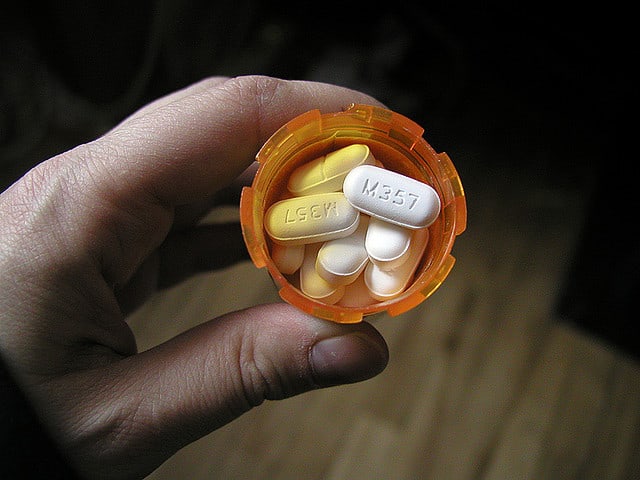Medical professionals do not prescribe drugs casually. After an examination, diagnosis, and discussion of your symptoms, medication may be prescribed for good reason.
Yet, it’s also important to realize that all drugs have side effects and nearly every medication has an alternative medication or lifestyle choices (diet and exercise, chiropractor, watchful waiting, etc) that may be able to help you address your malady. That includes over-the-counter drugs, homeopathic and Asian medicines, and alternative therapies like acupuncture, meditation, or Chinese herbs.
As awkward as it may feel to question your doctor, you should. He or she is an expert, and you pay them for the best medical opinion. But you are the one taking the drug and consequently will be the one who experiences any complications that go with it. Ask questions about the benefits and the risks of any medication you are prescribed.
Here are some questions to get you started.

What To Ask About Your Medication
1. Why am I being prescribed this drug/medicine?
With this question you want to understand if the medicine is to manage symptoms (like GERD meds) or to cure the underlying problem (like an antibiotic). In either case, you’ll want to know if you should take the brand name or generic, and if this drug has been FDA-approved for the particular illness you demonstrate, or if it’s being prescribed “off-label.”
Doctors can prescribe any drug for any condition regardless of FDA approval. The studies to prove a drug is effective are done only on the conditions for which the medication has been “approved.”
Related: 4 Best Doctors For Chronic Illness
2. Are there other options to consider, like weight loss, homeopathic or Asian medicines, acupuncture, or watchful waiting?
Most health conditions can be treated in a variety of ways. Your doctor will make a recommendation based on experience, training, and knowledge of your specific health condition. If your preference is to consider an alternative before using a drug, ask your doctor about those options.
3. What are the side effects of this drug?
Your doctor and pharmacist should both offer you information about how to take the drug and note potential interactions with food or other drugs.
Here’s why knowing the side effects is important: if nausea or headache is a known side effect of the drug and you aren’t aware of it, you could end up in the ER unnecessarily. Alternatively, if you assume dizziness is a side effect and it’s not, your doctor should know of a new symptom that might change your care plan.
Related: Warning: How You’re Neglecting Your Adrenal Health
4. How long will I have to take this drug? Is it hard to get off of it?
Some drugs (sleep aids and GERD drugs, for example) tend to have a “rebound” effect. This means if you take a sleep aid one night, it is often harder to fall asleep the next night without the pill, leading to dependence and another pill the next night. Many people find they have to be weaned off the pills and have trouble returning to a non-drug sleep pattern.
If you are taking a drug to manage a symptom, like high blood pressure or cholesterol, also consider if you want to commit to taking that drug for the rest of your life, or if you want to try an alternative first. Most all of us will need drugs at some time, but the fewer we take as we age, the fewer problems we’ll have with drug interactions as add new medications to our daily regimen.
4. Do we know the long-term effects of this drug? Have there been studies?
New drugs enter the market every day and too many get withdrawn after a few years when more side effects and even adverse events (extreme side effects that can kill or land the patient in the hospital) that weren’t caught in the small-scale studies before approval are discovered.
Related: Is Your Medicine Making You Sick?
If possible, it’s a good idea to ask for drugs that have been used widely for five or more years so that it’s more likely the drug has been safely used in the general population. However, keep in mind that there are no guarantees — some long-term effects of a drug aren’t known for many years. In light of the possibility that a drug can have serious side effects and long-term effects, it’s best to avoid drugs until necessary and take them for the shortest period of time at the lowest effective dose possible.
5. If the medicine doesn’t work, what’s the next step?
If this drug doesn’t work, how many others are there to try? Is a surgery in the future? What can you do to delay or divert this path of relying on drugs to address your medical condition?
Don’t get me wrong, I know that drugs save lives and can enhance the quality of life. As we age, drugs can keep us healthier and active longer. Most of us will need drugs as we age, which is a great reason to take as few drugs as possible now before you absolutely need them. Some drugs like antibiotics lose their power if overused, some drugs restrict what foods you can enjoy and all drugs interact with other drugs leaving doctors fewer medical options as you take more drugs. The best policy? Take the lowest dosage that is effective for the shortest period of time. And talk to your doctor. You are your best health care advocate.
***********
 Suzanne Robotti founded MedShadow Foundation in 2012 after two major health issues drove her to become engaged in patient advocacy. An active participant in community life, Su serves on the boards of numerous New York City-based organizations. Su has been honored for her extensive contributions to community service from The President’s Council on Service and Civic Participation. Follow Suzanne Robotti on Twitter @MedShadow_Su.
Suzanne Robotti founded MedShadow Foundation in 2012 after two major health issues drove her to become engaged in patient advocacy. An active participant in community life, Su serves on the boards of numerous New York City-based organizations. Su has been honored for her extensive contributions to community service from The President’s Council on Service and Civic Participation. Follow Suzanne Robotti on Twitter @MedShadow_Su.
Photo by massdistraction
